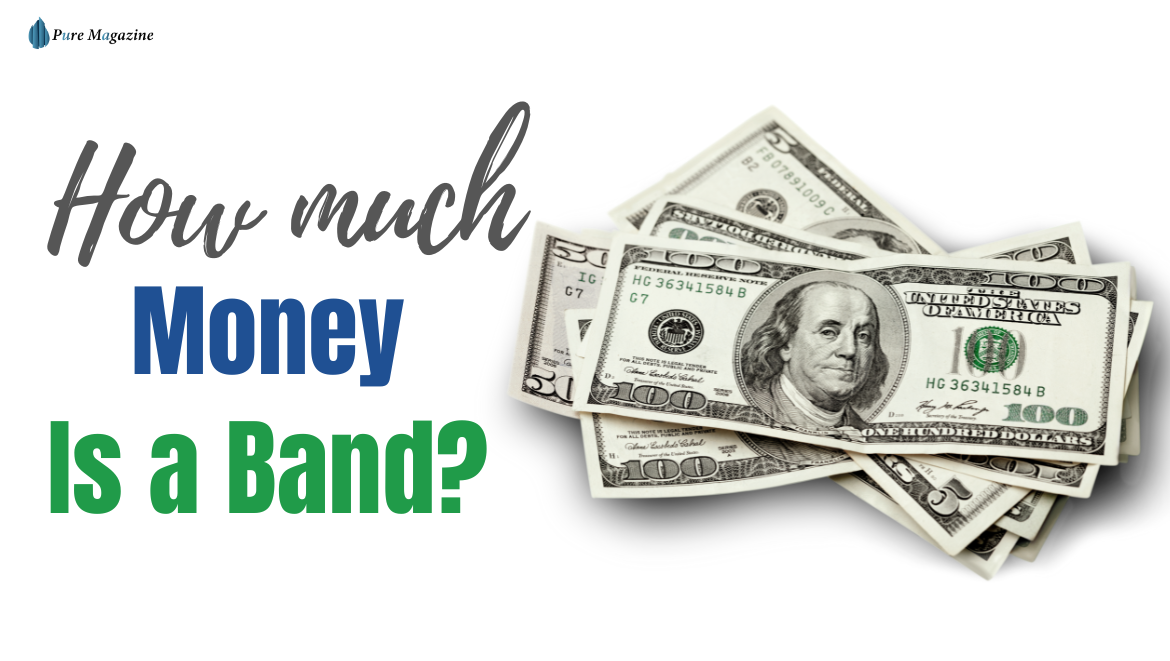Money talks — but sometimes, it speaks in code.
If you’ve ever heard someone say, “I just made a few bands this week,” and wondered how much that really means, you’re not alone.
Let’s decode one of the most famous pieces of money slang out there — the “band.”
What Is a “Band”?
Picture this: a stack of $100 bills wrapped tightly with a rubber band.
That’s where it all began.
In slang terms, a “band” equals $1,000 — usually in cash. The nickname comes from the rubber band used to hold a stack of bills together. So when someone says they “made 10 bands,” they’re saying they made ten thousand dollars.
The term started in street and hip-hop culture, where cash was both a symbol and a statement. Over time, it spread far beyond rap lyrics into everyday language and social media slang.
How “Bands” Became a Cultural Symbol
Money has always been more than currency — it’s power, hustle, and status.
When rappers like Juicy J dropped “Bands a Make Her Dance” in 2012, the term exploded into mainstream culture. It became a shorthand for financial success — not just cash, but what it represents: earning your worth, showing your perseverance, and showcasing your accomplishments.
By the mid-2010s, “bands” was everywhere — from lyrics to Instagram captions like “secured a few bands this month.”
And just like that, what started as a street phrase became global slang for wealth.
Did You Know?
The U.S. Federal Reserve actually uses colored currency straps to bundle cash.
- A brown strap represents $1,000 in $100 bills — the exact origin of “a band.”
So when someone says “a band,” they’re not far off from a real banking term. Pretty wild, right?
Bands vs. Stacks vs. Racks — What’s the Difference?
If you’ve heard all three, here’s how they break down:
| Slang Term | Approximate Value | Meaning / Context |
| Band | $1,000 | Money tied with a rubber band |
| Stack | $1,000 or more | A visible pile of cash, often 10 bands ($10,000) |
| Rack | $1,000 | Common in hip-hop slang; similar to “band” but sometimes flashier |
So yes — “a band,” “a rack,” and “a stack” can overlap. But “stack” often implies more volume, while “band” emphasizes bundled bills.
It’s like different dialects of the same money language.
Why Do We Use These Money Slang Terms?
Slang shapes identity.
When you say “I made a few bands,” it doesn’t just tell people how much — it tells them how you think.
- It connects you to a community of hustlers, creators, and dreamers chasing financial independence.
- It makes money feel personal, not corporate.
- And it turns financial success into a story — not just a number.
That’s why you’ll see the term “band” pop up in rap lyrics, TikTok finance trends, and even crypto conversations. Language evolves — and “bands” evolved right along with it.
Bands in the Digital Age
Funny thing — most “bands” today aren’t even physical cash.
They’re digital: PayPal transfers, crypto profits, or side-hustle payouts. But the symbolism stays strong.
When people online say they “made a few bands,” they’re not always talking about literal cash — they’re flexing a win. It’s about financial freedom, whether it came from music, content, or investments.
The Deeper Meaning of “Bands”
At its core, “bands” represent achievement.
It’s not just slang — it’s a mindset. A reminder that financial milestones, no matter how small, are worth celebrating.
Whether it’s a band, a stack, or a rack… the grind behind it always matters more than the amount.
FAQs
Q: How much is a band of money?
A “band” is $1,000 in cash, usually made up of ten $100 bills tightly wrapped with a rubber band. The term comes from the visual look of a small cash bundle, often seen in music videos and street culture.
Q: Why do rappers say “bands”?
Rappers use the term “bands” as a symbol of wealth, hustle, and success. It originated in hip-hop culture, where money wasn’t just income — it was proof of grind, fame, and achievement. Over time, “bands” became everyday slang for large sums of money.
Q: Is a band always physical cash?
Not anymore. While a “band” once meant real cash bundled with a rubber band, today it can also describe digital money — like online earnings, crypto profits, or side-hustle income. It’s less about how it’s held, and more about how it’s earned.
Q: Where did the term “band” come from?
The word “band” literally comes from rubber bands used to bundle stacks of $100 bills. Banks, hustlers, and business owners alike used rubber bands to hold $1,000 bundles — and the slang stuck. Eventually, the term made its way into hip-hop lyrics and social media, becoming a global expression for money.
Final Thoughts
“Band” might sound like just another slang term, but it carries a story — one about hustle, status, and the evolution of money itself.
So the next time someone says they made a few bands, remember:
It’s not just about the $1,000.
It’s about what that band represents — the grind, the growth, and the glory that comes with earning it.
Visit: Pure Magazine








